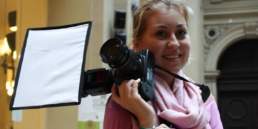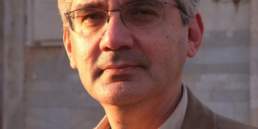
At the Agora in Alicante voting will be like a marathon race. At the previous Agora in Istanbul the delegates had to vote on 17 proposals. You think that cannot be topped? Wrong! The proposal booklet of the Agora in Alicante contains 20 proposals. A lot of them regard smaller issues, but some of them might cause heavier and longer discussions. Among the easy, but important ones is the “Planning proposal”, which aims at making the different elements of the current planning structure with Fields of Action, Strategic Plan, Action Agenda and Flagship Projects more coherent. It will also shift the start of the planning year to 1st of August, bringing it in line with the internal financial year.
Several other proposals deal with internal matters of the Network Commission – also easy ones to pass. For sure many delegates will welcome the proposals regarding obligatory content for Travelling Summer Universities and European event, which are aiming at increasing the quality of their content in terms of hours of tuition, lectures, workshops and cultural games. Seeing the decline in terms of content of many SUs and events, these proposals are surely necessary.
There are other proposals that actually not many people will care about, such as the abolition of the Liaison Agency and changes in functioning of the Liaison Office. Probably not many people know that the Liaison Agency even exists. And seriously: who knows by heart the name of any Liasion Officer of AEGEE? And who has ever seen any results of their work?
There are other, much more controversial proposals. Such as the Visual Identity proposal that received a majority at the previous Agora in Istanbul, yet failed to get the necessary two-third majority. Core of the proposal is a strict set of guidelines, how to use a new set of visual elements, such as a new logo, defined colours and much more. At the previous Agora the proposal did not get a two-third majority, because the old logo is still very popular and some new guidelines were regarded as not flexible enough. Let’s see whether the proposal will pass this time – and with which adaptions.
Quite some discussions already before the Agora were caused by another proposal, regarding the AEGEE Working Groups. If this proposal passes, the AEGEE-Academy would lose its status as independent NGO with an own bank account an the right to independently apply for grants for training events. Quite a lot of AEGEE-Academy members are against the proposal, which aims at bringing the working groups under a stronger control of the network and the CD.
Also the Focus Groups proposals looks controversial, because it means more work for the antennae. What’s the idea? This proposal aims at involving each antenna stronger in the planning process of AEGEE in order to motivate them to assume responsibility for the actions. For this, focus groups will be created. Each local of the AEGEE-network will become a member of one focus group of their own choosing. This also means that for every of the currently six focus areas in the strategic plan there will be one corresponding focus group. At every statutory event there will be focus group meetings with compulsory attendance. The objective of these meetings will be to brainstorm, to draft and to plan activities related to the focus area in a coherent fashion. It will be interesting to see, whether the locals, which already now have to fulfill ten antenna criteria, will like this 11th criteria.


